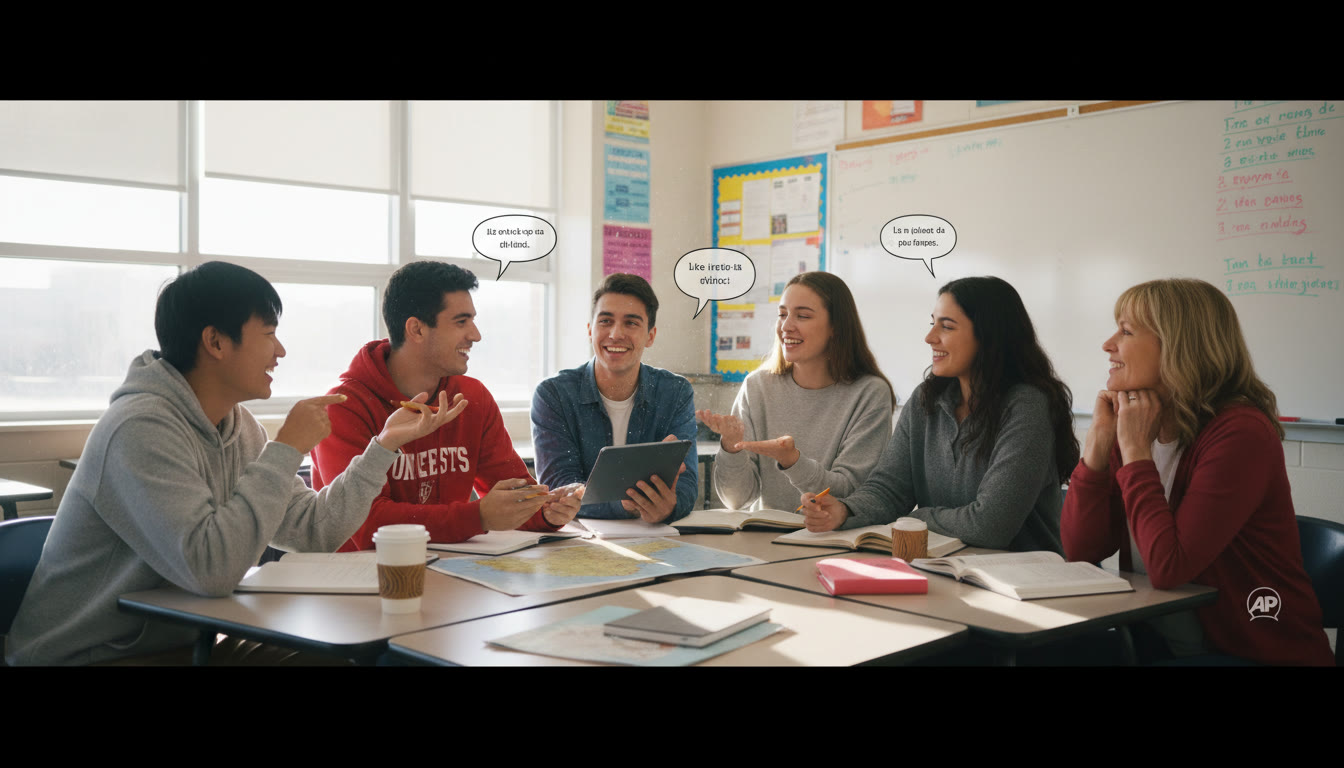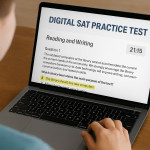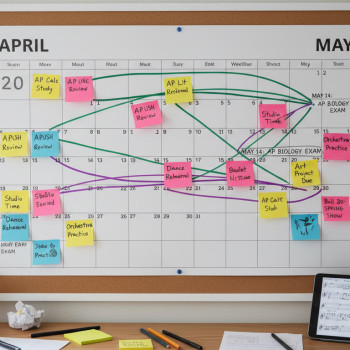Wellesley: Language AP Placement — What Every Student and Parent Should Know
Heading into college with Advanced Placement (AP) language credits can feel like holding a golden ticket — or maybe a mysterious map you can’t quite read. For students admitted to Wellesley College, the language AP experience raises practical questions: Which scores let you place out of requirements? Where will you start in conversation-focused classes? Can you use AP credit to skip a language requirement entirely? This guide speaks plainly to students and parents, offers realistic examples, and gives a gentle game plan so you walk into orientation confident — not confused.

Why language placement matters
Language placement affects your first semester in important ways. It can influence your schedule flexibility, how much time you can devote to other subjects, and the social and academic experience of your first classes. At Wellesley, where rigorous academics and vibrant campus life both matter, starting in the proper language level helps you participate fully, feel successful early, and keep momentum.
Three practical outcomes of AP placement
- Placement into the correct course level so you get appropriate challenge and support.
- Potential fulfillment of foreign language distribution requirements — freeing room in your schedule for other interests.
- Possibility to pursue advanced electives (literature, translation, linguistics) sooner if you start at a higher level.
How placement typically works (a clear, general view)
Colleges often combine two inputs when they decide where to place a student: your AP exam score and a placement assessment administered by the language department. While policies vary, there are common patterns.
Common patterns you can expect
- AP scores of 5 often place students into advanced or upper-intermediate courses; some schools may grant credit.
- AP scores of 4 commonly place students into intermediate or upper-beginning levels, sometimes with credit for introductory coursework.
- AP scores of 3 may earn elective credit at some colleges but more often place students into early intermediate levels rather than fully advanced classes.
- Departments usually offer or require a short placement interview or online test focused on speaking and comprehension to refine the AP-based placement.
Important: policies vary by college and by language — and departments sometimes prioritize demonstrated speaking ability over a single test score. Think of your AP score as a strong indicator, not an absolute rule.
What this means specifically for Wellesley students (practical guidance)
Wellesley values both proficiency and classroom readiness. While the exact cutoffs and credit policies can change, here’s a practical way to interpret language AP outcomes so you can prepare strong initial plans for your first semester.
Interpretive guide (use this to prepare conversations with the language department)
- If you earned a 5 on an AP Language exam: prepare to request higher placement or credit. Bring evidence of continued study beyond the course (summer immersion, conversation clubs, tutoring).
- If you earned a 4: expect to be placed at an intermediate level but be open to a short departmental oral assessment to determine the best fit.
- If you earned a 3: be ready to show strengths in specific areas (writing portfolio, conversation practice) if you hope to place higher; otherwise, plan on early intermediate coursework to solidify skills.
- No AP score: Wellesley — like many institutions — will offer placement testing or an interview so you begin at the level that fits you.
Sample placement table (illustrative — verify with Wellesley language department)
| AP Score | Typical Placement Level | Likely Credit Outcome | What To Bring To Placement Review |
|---|---|---|---|
| 5 | Advanced Intermediate / Upper-Level | Possible credit for introductory and intermediate courses | Recent speaking samples, summer study, portfolio of written work |
| 4 | Intermediate | Possible credit for shorter introductory sequence | AP score report, examples of continued practice (tutoring or clubs) |
| 3 | Early Intermediate | Occasional elective credit; placement often into intermediate class | Writing samples, evidence of coursework |
| No AP | Beginning to Early Intermediate (after department test) | No AP-based credit | Prepare for departmental oral/web-based placement test |
Note: This table is illustrative. Always confirm Wellesley’s current policies with the language department or registrar when you receive your admissions materials.
How to prepare for Wellesley’s placement process
Preparation is part mindset and part strategy. Think ahead about how you’ll present your abilities and evidence of learning.
Steps to take before arriving on campus
- Secure your official AP score report and keep a copy of your high school language transcript handy.
- Record a short speaking sample (2–4 minutes) that highlights natural pace and vocabulary — this helps in departments that ask for oral checks.
- Assemble writing samples if you wrote long-form essays in your AP course or in independent projects.
- Practice conversation for a few weeks before orientation so your ear and speaking muscles are active.
- Consider a few 1-on-1 sessions with an expert tutor (Sparkl’s personalized tutoring, with tailored study plans and expert tutors, can be a helpful option) to polish weak areas.
Classroom expectations after placement
Once placed, remember that college language classes often differ in pace and emphasis from AP classroom experiences. AP exams test breadth and a set of skills; college courses tend to be conversational, immersive, and sustained over a semester.
What changes when you move from AP to Wellesley courses
- More emphasis on sustained oral participation and listening comprehension in class sessions.
- Greater focus on cultural texts, authentic materials, and nuanced literary readings in upper levels.
- Smaller class sizes with more interactive, discussion-driven formats.
- Continuous formative assessments instead of a single high-stakes exam.
Real-world examples and classroom scenarios
Imagine two students who both earned AP scores of 4 in Spanish. One spent summers in a Spanish-speaking community and continued weekly conversation sessions. The other stopped after taking the AP class and hasn’t used the language since. Even with identical scores, the department interview usually places the first student in a higher conversation-focused course because her spoken fluency and comprehension are stronger. This is why departments often ask for more than the number on a test.
Scenario: a student with an AP 5 who prefers to study other subjects
If you have a 5 and want to free a slot for a research seminar or an elective, many colleges — and sometimes departments — allow you to use credit to satisfy requirements. But some students choose to take a higher-level language course instead of accepting credit so they can continue building proficiency and enjoy a lively seminar in culture or literature. Think intentionally: do you value time saved now or accelerated proficiency the longer route offers?
Study strategies tailored to AP placement success
Whether you’re still prepping for the AP exam or heading into placement, these practical study strategies will sharpen the skills departments care about most.
Active, evidence-based practices
- Regular short conversations: 20–30 minute conversation sessions three times per week beat a single two-hour cram session.
- Mix input and output: pair listening (podcasts, short videos) with immediate speaking or writing responses.
- Simulate placement interviews: practice short oral presentations about yourself, a literary passage, or current events.
- Use spaced repetition for vocabulary, but tie new words to real sentences and cultural contexts.
- Consider tailored 1-on-1 tutoring for focused feedback; personalized tutoring — such as Sparkl’s 1-on-1 guidance with tailored study plans and AI-driven insights — can accelerate improvement by targeting your specific gaps quickly.
Questions to ask Wellesley’s language department (and what you’ll learn)
Approach the placement conversation like a short job interview: you’ll learn where you fit best and show you’re ready to be a productive classroom member.
Key questions
- How does Wellesley use AP scores to determine placement and credit?
- Do you require an oral interview or online placement assessment?
- If I place into an advanced class, what are the expectations for outside-of-class preparation?
- If I prefer to earn AP credit rather than take a course, what are the tradeoffs?
- Are there accelerated pathways to advanced seminars in literature or culture?
Making a confident final decision
Once the department shares a placement, take a few practical steps before classes begin to make that placement work for you.
Final checklist
- Confirm whether AP credit will appear on your transcript and whether it counts toward distribution requirements.
- If placed higher than you expected, ask for a brief syllabus or a reading sample to preview the class material.
- If you’d rather build stronger foundations than accept credit, discuss options to enroll at a lower level with an eye toward advanced offerings later.
- Plan for conversation partners and supplemental resources so you don’t just survive the class — you thrive in it.
How families can support without taking over
Parents play a powerful role by creating calm, practical support. The most helpful moves are logistical and emotional: ensuring scores are sent, encouraging practice, and reminding students that placement is a tool for learning — not a permanent label.
Concrete ways to help
- Double-check that official AP score reports are sent to Wellesley if required.
- Encourage a balanced schedule during orientation week so language skills stay fresh.
- Help create a quiet space for practice sessions before classes begin.
- Discuss academic priorities together: credits saved now might mean different opportunities later.

When to seek extra help — and how to pick it
Some students cruise through placement and classes; others benefit from extra support to refine conversation or to gain confidence. If you sense gaps in speaking, listening, or composition, targeted help early in the semester pays dividends.
Choosing effective support
- Prefer short, focused sessions that address precise needs (pronunciation, verb forms, listening comprehension).
- Look for tutors or programs that offer real conversational practice and corrective feedback.
- If you want a structured plan and data-driven progress tracking, consider personalized tutoring that blends expert instructors with adaptive insights — options like Sparkl’s personalized tutoring can be especially helpful because they combine 1-on-1 guidance, tailored study plans, and AI-driven insights to keep improvement on track.
Final thoughts — your placement is a starting line, not a finish line
Whether you arrive with a perfect AP score or you’ll take a department placement, remember this simple truth: college language learning is a process. The goal is sustainable growth, real-world communication, and intellectual curiosity. Use your AP results as a helpful map, but be ready to add your own compass — regular practice, smart support, and a willingness to speak imperfectly are the real engines of progress.
A short action plan for the next 30 days
- Gather official AP score reports and copies of your high school transcript.
- Record a 2–4 minute spoken clip summarizing a favorite book, news story, or personal experience in the target language.
- Book 2–3 short practice conversations (with friends, a tutor, or online partners) to get your speaking active.
- Decide whether you want to accept credit, place up, or continue studying — and prepare to discuss that preference with the department.
Walking into Wellesley with clarity about language placement makes the first weeks calmer and the first semester more productive. With a bit of preparation — the right documents, a short speaking sample, and a plan for support if needed — you’ll turn AP momentum into lasting college proficiency. If you’d like structured, personalized help to polish speaking or writing before placement, consider tailored 1-on-1 tutoring to boost confidence and results.
Wishing you a smooth transition
Language learning at Wellesley can be among the most rewarding parts of your college experience. Whether you aim to finish your language requirement quickly or to continue climbing to seminars in literature and culture, thoughtful placement decisions and steady practice will carry you forward. Good luck — and enjoy the discovery.
















No Comments
Leave a comment Cancel